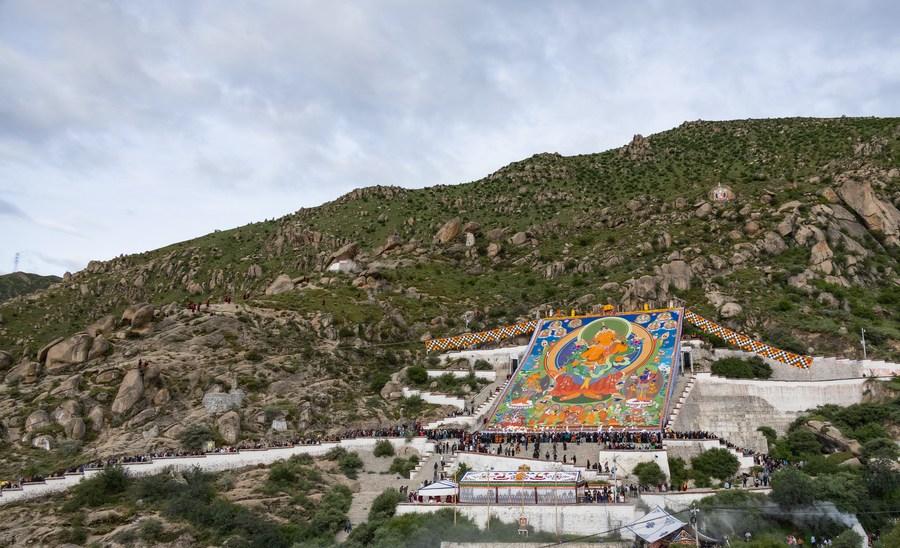

This photo taken on Aug. 16, 2023 shows a huge Thangka painting during the "sunning of the Buddha"
Tibet's regional capital Lhasa received over 2.86 million tourist arrivals during this year's Shoton Festival, a traditional holiday featuring religious rituals, food and art, said the local tourism development bureau Tuesday.
During the five-day holiday ending on Sunday, Lhasa raked in 1.03 billion yuan (about 141.21 million U.S. dollars) in tourism revenue, said Nagwang Trinley, an official with the bureau.
"Tibet has seen a tourism boom since early summer, and the Shoton Festival has injected new vitality into the booming tourism market, particularly in Lhasa," he said.
The Shoton Festival, celebrated mainly in Lhasa, originated in the middle of the 11th century and was among the first to be inscribed in the national list of intangible cultural heritage in 2006.
Typical celebrations begin with unrolling a giant Thangka painting at the Drepung Monastery, a ritual also known as the "sunning of the Buddha." Other activities include tasting yogurts, picnicking, and attending traditional events such as Tibetan opera performances and horse racing.
A tourist from Jinan, the capital of east China's Shandong Province, who gave only her family as Xia, said she enjoyed watching Tibetan opera at Norbulingka, dubbed Lhasa's "Summer Palace." She had followed tips on the internet to make her trip more rewarding.
The Shoton Festival celebrations went viral on the web this year: the livestreaming of its opening ceremony last Wednesday was viewed about 4.33 million times. On China's social media, videos with the hashtag "Shoton Festival" received 41.27 million clicks, according to data provided by the Lhasa municipal government's media office.
The festival has drawn crowds of tourists to various attractions in Lhasa and beyond. Liao Sijie, from east China's Fujian Province, said she enjoyed a tour of the Tibet Museum, where she learned about Tibet's history and culture.
"We are lucky to have arrived in Lhasa during the Shoton Festival celebrations," said Ma Jun'er from Gansu Province in the northwest as he queued to enter the Potala Palace. "The festive ambiance is fantastic!"
